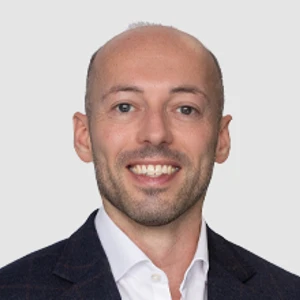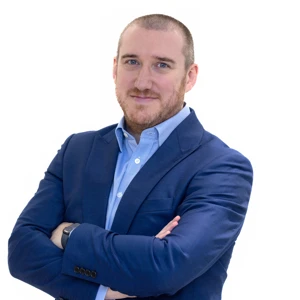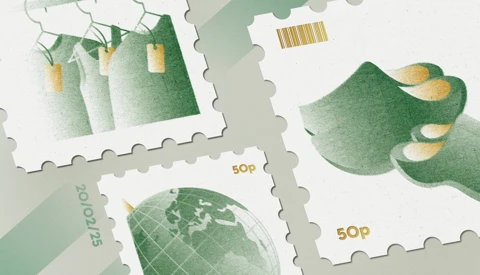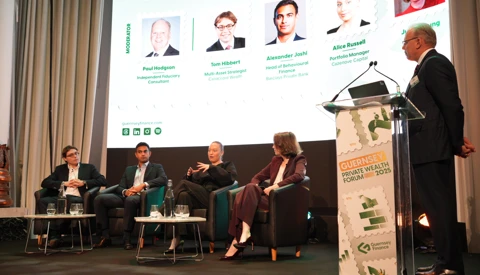First published in the Financial Times by Andrew Elder (Chief Commercial Officer, IQ-EQ Guernsey) and Craig Cordle (Partner, Walkers Guernsey).
Wealth management is entering a new era, shaped by demographic change, market volatility and rising scrutiny.
After decades advising founders and families navigating extraordinary growth, Andrew Elder, Chief Commercial Officer at IQ-EQ, Guernsey, and Craig Cordle, Partner at Walkers, Guernsey, have front row seats on the largest intergenerational wealth transfer in history.
In this conversation, Andrew and Craig discuss the patterns and opportunities shaping modern wealth creation and the opportunities emerging in a volatile economic climate.
What are the top three challenges entrepreneurs and wealth creators currently face?
Andrew: Over $80tn is set to be transferred into the hands of younger, more entrepreneurial generations by 2045. But without the right structures in place, studies show us that on average, 70 per cent of family wealth is lost by the second generation.
The challenges I see entrepreneurial individuals and their families facing can be grouped into three main categories:
Professionalising their organisations. A significant percentage of global wealth is still held in informal legacy arrangements or managed by family offices run by one person. As businesses and families grow, they need more professional structures and staff that can scale with them.
Balancing privacy with transparency. Regulatory and public scrutiny are increasing, and high-profile clients need maximum discretion while meeting compliance requirements. Achieving the right balance is a constant challenge.
Managing risk while generating wealth. Wealth creators are exposed to increased risk as their net worth grows, whether we’re talking about geopolitical shifts, market volatility or over-concentrating wealth in a single asset or jurisdiction. They need robust solutions that are both flexible and secure.
Craig: I’d add one more challenge that’s becoming increasingly relevant: creating structures that can support family participation and long-term legacy planning.

We’re seeing many wealth creators who want their children or next-generation family members to play an active role, not only as beneficiaries, but also as stewards of family capital. That introduces complexity in terms of governance, structuring and investment flexibility. Our clients need sophisticated structures that can evolve with the family’s needs and ambitions over time.
What solutions would you suggest they explore?
Andrew: I’m admittedly a bit biased, but Guernsey offers a level of flexibility and efficiency that’s difficult to match.
Starting with flexibility, the jurisdiction provides a wide range of structuring options, from protected cell companies (PCCs), which allow for the statutory ringfencing of assets and liabilities within the same company, to private investment funds (PIFs) which facilitate the co-investment of multiple investors into a single light-touch regulated structure. Families can customise these structures around their governance requirements, investment strategies and risk appetite. These structures are incredibly adaptable, whether you have a small family office or a multi-generational enterprise.
Craig: To add what Andrew is sharing, Guernsey also has a history of international credibility. It recently received a positive outcome from MONEYVAL, highlighting the jurisdiction’s cooperative and well-regulated approach. This reputation comes from decades of strong legal frameworks, robust data protection, and a stable political and economic system, all of which are critical for clients looking to preserve their wealth.

Thanks to that longstanding reputation, the jurisdiction offers deep local expertise and extensive talent in the financial services sphere. Advisers here know each other well, which means wealth creators benefit from improved collaboration and seamless partnerships.
Can you share any insights from the field?
Craig: One example that highlights the power of Guernsey structures involves an ultra-high-net-worth (UHNW) client with global investments who already had several existing trust structures in place for their heirs. They wanted to pool family wealth into a single managed structure and offer participation opportunities to their wider UHNW network, while also saving costs on running the structure. Two of their children – both experienced in investment management – were eager to participate actively and provide input on investment strategy.

We established a cellular PCC PIF, with the children appointed as advisers and individual cells created to segregate different investment types. In this case, the venture capital investments were ringfenced in one cell so the higher-risk nature of these assets wouldn’t affect other investors. This structure was highly tailored to the family’s needs, flexible and discreet in a way that’s difficult to replicate.
Andrew: I’ve seen similar successes, where Guernsey’s structuring flexibility allows clients to balance regulatory requirements with personal and family objectives. As entrepreneurs and family offices continue to create wealth in new ways, they need jurisdictions that are just as agile and forward-thinking. And in our experience, the ones that adapt most effectively will be best placed to meet that challenge.
To explore how a Guernsey structure could help, contact Andrew Elder or Craig Cordle today.









